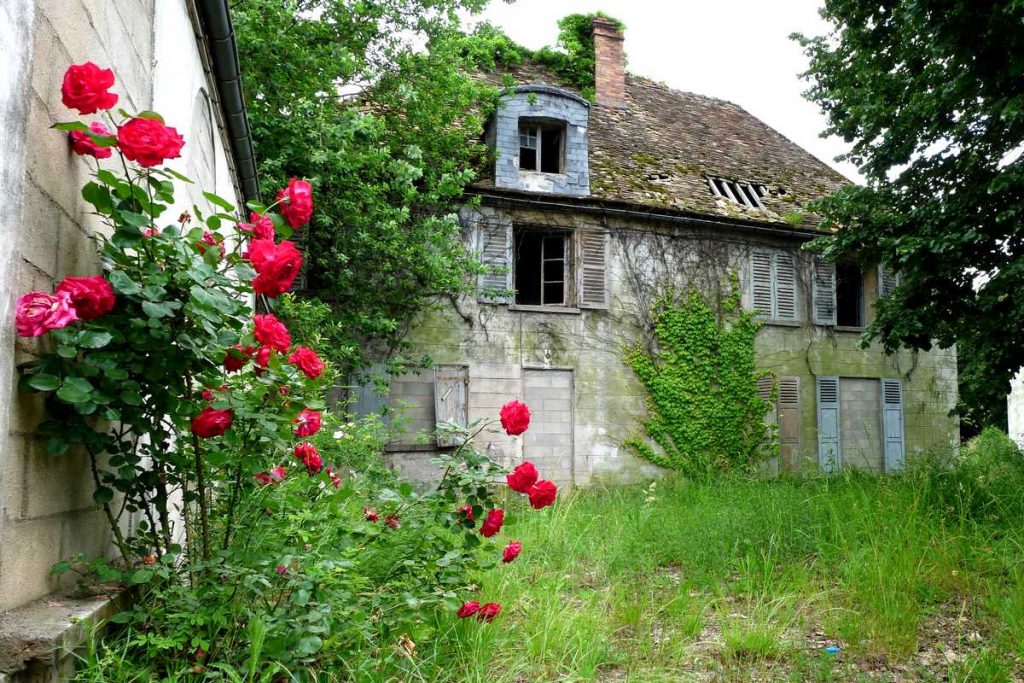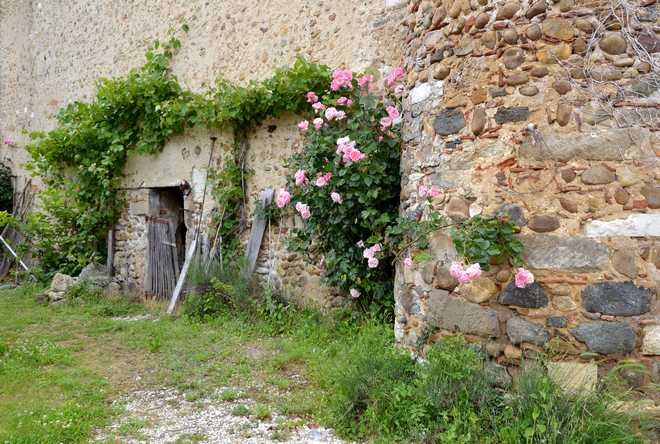
It is always said that roses should be fed every year to make them bloom abundantly. However, how to explain that in certain abandoned gardens, the roses are content with what they find in the ground and with a few rain showers, in summer?
Roses that don’t need fertilizer
So are some roses less greedy than others ? It’s hard to generalize, but yes, according to our observations, some roses are really more vigorous and less demanding than others.
This is the case for example:
- of a large number of old roses , reputed to be more resistant to diseases than the others.
- certain climbing or semi-climbing roses such as Albéric Barbier, Bloomfield Abundance, Mme Alfred Carrière, the Banks rose…
- some shrub roses like La Belle sultane
- of the majority of gallic roses : hardy roses originating from the Mediterranean regions. They are as resistant to heat and drought as they are to frost.
The right choice of species and variety
So that’s the key when you don’t want to give fertilizer. All the roses mentioned above can, if necessary, make do with poor soil. This is the reason why we often see them still blooming in profusion in an abandoned garden.
But in the same family, some will only give the best of themselves in a sufficiently rich and watered soil.
This is why nothing will replace the advice that you can glean from a rose grower. Only he knows the precise requirements of each of his roses and can advise you on the choice and the way to cultivate or maintain a rose according to your soil and your climate.

How to properly feed roses?
It is obvious that the nature and composition of the soil have a direct effect on the roses: both on the fragrance of the roses, on the resistance to diseases and on the vigour.
A rosebush that does not find enough to eat in the ground is therefore very quickly spotted!
- Its young shoots are stunted,
- Its leaves are quickly susceptible to black spot diseases or powdery mildew, especially if it is grown in the shade, in a humid and poorly ventilated environment. Here, treatments are not the solution. At most, they temporarily mask the real problem, which is the lack of food or a crop in poor conditions.
To correct the shot, a supply of manure or fertilizer is essential. And often, you also have to consider moving it to a more suitable place: in the sun, sheltered from the winds…
When to Fertilize Roses?
Do this preferably in late winter, just before spring growth resumes rather than in fall, a time when the shrub goes dormant. He doesn’t need it at this time of year.
Spread a large handful of balanced manure, Brown Gold type, on the feet, taking care not to bury the grafting point. Claw the soil to mix it and finish with a light watering.
Instead of manure, you can use an organic fertilizer for roses, banana peels (this is a known trick for a long time) or a good thickness of grass clippings regularly renewed. All these solutions are even preferable to manure at the feet of fragrant roses because they do not alter the delicious smell of their flowers.
In any case, two principles to strive for:
- Observation is the key to their culture
- Well-nourished roses are naturally always more resistant to disease!
